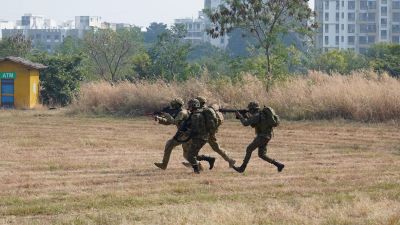‘CIA used Swiss family to expose Khan’s nuke black-market’
The CIA's deal with a family of Swiss engineers helped it to reveal underground supply network of disgraced Pakistani nuclear scientist A Q Khan, end Libyan atomic programme and expose Iranian ambitions.

The CIA’s deal with a family of Swiss engineers helped it to reveal underground supply network of disgraced Pakistani nuclear scientist A Q Khan, end Libyan atomic programme and expose Iranian ambitions.
A report in The New York Times on Monday said Switzerland had acknowledged in May that it had destroyed a huge trove of computer files and other materials, documenting the business dealing of the Swiss family suspected of helping smuggle nuclear technology to Libya and Iran, so that they do not fall in the hands of terrorists.
But the newspaper said the real reason for the destruction was pressure from the CIA, which feared that its ties with the family would be exposed.
It said the operation involved Friedrich Tinner and his two sons, who have been accused in Switzerland of dealing with rogue nations seeking nuclear equipment and expertise.
Over four years, the report citing unnamed officials said, operatives of the CIA paid Tinners as much as USD 10 million, some of it delivered in a suitcase stuffed with cash.
In return, the Tinners delivered a flow of secret information that helped end Libya’s bomb programme, reveal Iran’s atomic labours and ultimately, undo Khan’s nuclear black-market.
In addition, the officials were quoted as saying the Tinners played an important role in a clandestine American operation to funnel sabotaged nuclear equipment to Libya and Iran, a major but little-known element of the efforts to slow their nuclear progress.
The relationship with the Tinners ‘was very significant’, the newspaper quoted Gary S Samore, who ran the National Security Council’s nonproliferation office when the operation began, was quoted as saying.
“That’s where we got the first indications that Iran had acquired centrifuges,” which enrich uranium for nuclear fuel. Yet even as US officials describe the relationship as a major intelligence coup, the paper said compromises were made.
Analysts studying Khan’s network, it said, worry that by destroying the files to prevent their spread, the Swiss government may have obscured the investigative trail.
It is unclear who among Khan’s customers a list that is known to include Iran, Libya and North Korea, but which may extend further got the illicit material, much of it contained in easily transmitted electronic designs, it said.
The West’s most important questions about the Khan network, The Times says, have been consistently deflected by Pakistan’s former President Pervez Musharraf. He refused to account for the bomb designs that got away or to let American investigators question Khan, perhaps the only man to know who else received the blueprints.
President George W Bush, eager for Pakistan’s aid on terrorism, never pressed Musharraf for answers.
The CIA, it said, declined to comment on the Tinners case, but a spokesman, Paul Gimigliano, called the disruption of Khan’s network “a genuine intelligence success.”
Tinner’s involvement with Khan quickened beginning in the late 1990s, when, joined by his sons, he helped supply centrifuges for Libya’s secret bomb programme.
In 2000, American officials were quoted as saying; Urs Tinner was recruited by the Central Intelligence Agency. Spy satellites can be fooled. Documents can lie. Electronic taps can mislead. But a well-placed mole can work quietly behind the scenes to get at the truth.
Officials told the paper that the CIA feared that a trial would not just reveal the Tinners’ relationship with the United States and perhaps raise questions about American dealings with atomic smugglers but would also imperil efforts to recruit new spies.





- 01
- 02
- 03
- 04
- 05


























